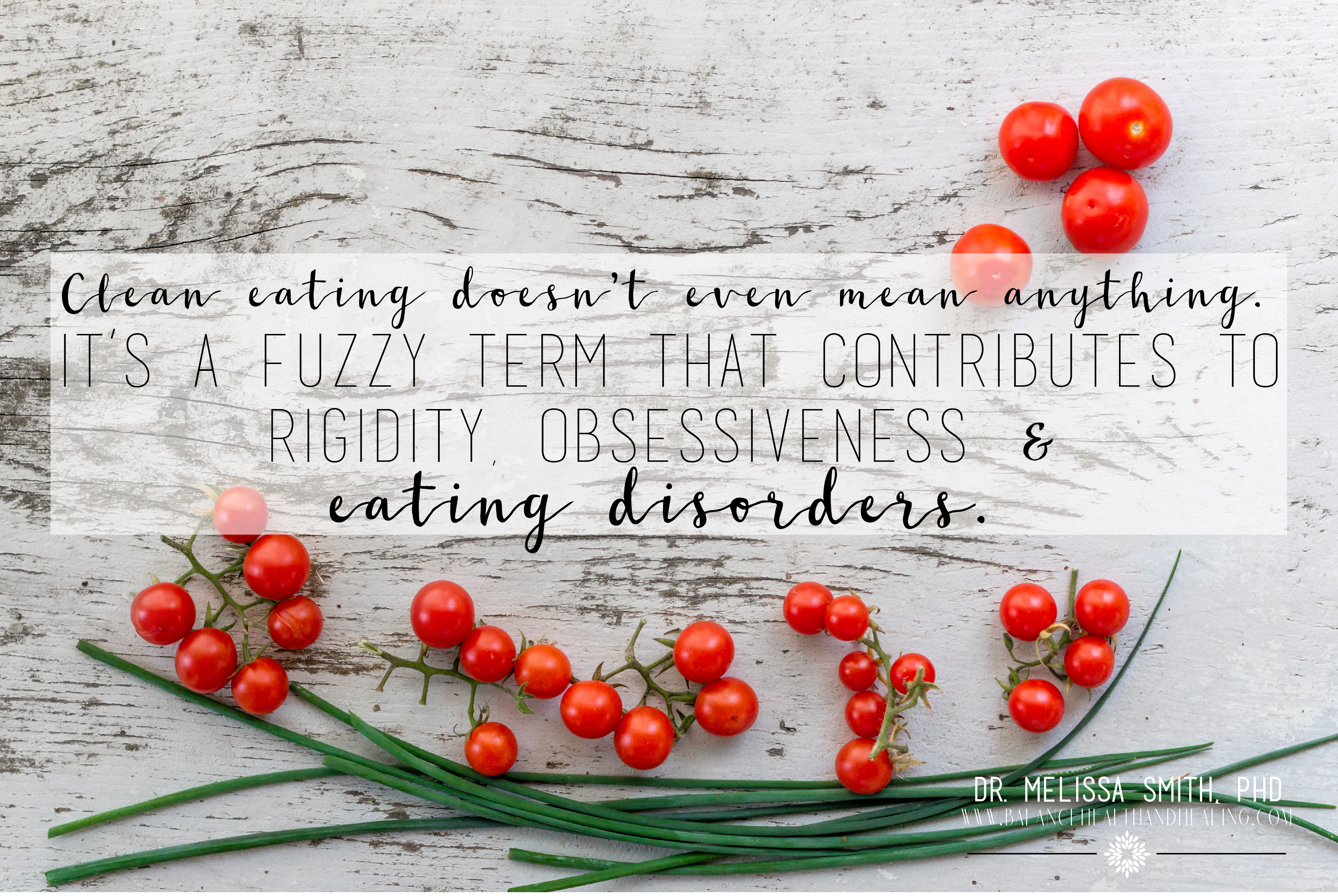It seems these days we can’t go anywhere without hearing the term “clean eating.” Social media accounts are full of people touting clean eating while posing in workout gear, and big companies have jumped on the bandwagon in an attempt to cater to the clean eaters out there.
For example, Panera Bread, a big chain of fast casual restaurants, has just launched its clean eating campaign, claiming that “100% of our food is 100% Clean” and that they’ve achieved their goal of creating “food without artificial preservatives, sweeteners, flavors or colors from artificial sources” (Panera, 2017). They also have a “no-no” list of ingredients they won’t allow in their foods.
This campaign is as ridiculous as it is pretentious.
What is Clean Eating?
The term clean eating first started popping up in the 1990s in response to processed food and is the idea of eating food in its most natural state. Then, as the paleo movement took off, clean eating was taken to an entirely new level with a focus on eating as cavemen with little processing of foods, avoiding foods that come in containers, and avoiding food additives. Today, the term is everywhere and is often tied to fitness, self-control, and—dare I say—moral superiority by those hash-tagging clean eating on social media.
Clean eating is just the latest iteration of our collective neuroticism when it comes to food. Years ago, we rid ourselves of fat in food (along with flavor) and began bingeing on low fat foods because “hey, they’re low fat.” Then carbs were the enemy and sandwiches had to be eaten in dark closets. We’re still in an uproar about sugar. Irresponsible documentaries present cherry-picked data to scare viewers. And now we have to clean our food? Clean eating doesn’t even mean anything. It’s a fuzzy term that contributes to rigidity, obsessiveness, and eating disorders.
Trust vs. Control
We have been taught that we can’t trust ourselves and that we can’t trust our bodies. We have been told what foods are good. What foods are bad. We have tied our identity to the food we eat and have relied on zealots to prescribe what is acceptable when it comes to the food we put in our mouth.
Why do we insist on associating morality with the food we eat? It’s just food, folks. Nothing more, nothing less. Preservatives are not the devil. You are not a lazy, out-of-control slouch if you eat food from a box. All food can be part of a healthy, balanced diet. Really.
I’m so tired of being told how and what I should eat. I’m tired of companies taking advantage of insecurities and guilting us into buying their products. Of course, we become willing victims to these campaigns, documentaries, and fitspo images. We want to believe that there is an answer to our insecurities, that there is a way to feel better about ourselves—that if we follow the “right” plan we will have the lives we want.
Making a Change
Of course, it doesn’t work that way. Learning to accept and trust yourself requires heavy lifting and it has absolutely nothing to do with the food you put in your mouth. And, it has everything to do with the food you put in your mouth. Food is meant to nourish, strengthen, and energize. It’s  not meant to guilt, shame, or punish. Rather than handing over control, try instead listening to your body. Trust the cues it’s sending you. Eat when you’re hungry, stop when you’re full. Allow free access to all foods. Challenge rigid food rules. Watch the judgments you make about food.
not meant to guilt, shame, or punish. Rather than handing over control, try instead listening to your body. Trust the cues it’s sending you. Eat when you’re hungry, stop when you’re full. Allow free access to all foods. Challenge rigid food rules. Watch the judgments you make about food.
If you’re confused by all the mixed messages you receive about food, if you’re tired of obsessing about food, and if you’re done with feeling guilty about food, then maybe you’re ready for a change. Changing your relationship with food isn’t easy, but it’s definitely worth it. Intuitive Eating (Tribole & Resch, 2012), an excellent guide to re-establishing trust with food, can be very helpful in the process. And the really cool thing is that as you reclaim food and your body, you can also reclaim trust and flexibility and freedom. That is change worth fighting for.
References
Panera Bread (2016). Panera Bread: Food as it should be. Retrieved from https://www.panerabread.com/en-us/our-beliefs/food-as-it-should-be-nopt.html
Tribole, E. & Resch, E. (2012). Intuitive eating: A revolutionary program that works. New York: St. Martin’s Press.

